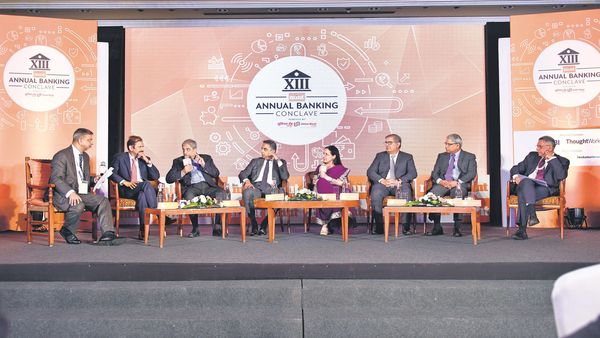Speaking at the conclave on 24 February, bank chief executives said at a panel discussion that unless the government takes on the lead role, lenders of both private and public entities, will find it hard to fund infrastructure projects. Amitabh Chaudhry, managing director and chief executive officer (CEO), Axis Bank, said in the last cycle of infrastructure financing, banks seemed to have forgotten whether they were taking debt risk or equity risk. “We were getting debt-like, or actually negative return, and ended up taking equity risk.”
He said banks realized that while backing the right kind of promoter, they also need to take into account political risks in India, where almost anyone can stop a project overnight. “It could be politicians, it could be courts, it could be someone going back on contracts,” he added.
About infrastructure financing, Chaudhry said: “We will not do it. If we do it, we will be out of job for sure. I don’t know what will happen to our banks.”
Zarin Daruwala, CEO, Standard Chartered Bank, said India could explore infrastructure funding through municipal bonds, as the US has performed very well with such instruments. “In India, muni bonds have not really taken off. If you look at the US, $4.1 trillion of muni bonds are there, and that is sizable. One of the ways in which they really incentivize muni bonds is through tax exemption on the interest initially from the federal tax.”
According to V. Vaidyanathan, CEO, IDFC First Bank, infrastructure financing is too complicated, and there are too many forces at play. “You put in ₹1,000 crore and one non-governmental organisation (NGO) can block it (the project). I know of one case where a bridge is three-fourths constructed, but after an NGO raised objections, that project has been stuck for three years.”
Vaidyanathan said because the government is the controller of the entire ecosystem, and not banks, the government is better placed in terms of infrastructure funding. “If the government can borrow and put the money on its own, it is good. Or the government could set up a special purpose vehicle (SPV), put some equity and the SPV borrows from the market and creates infrastructure.”
Bankers also discussed India’s slowing growth, and the country’s ambition to become a $5-trillion economy.
Aditya Puri, managing director, HDFC Bank, said credit will be critical for reaching the $5-trillion gross domestic product (GDP) target. “(The role of) banks will be critical to provide the finance, but the demand has to come from industry and growth areas—obviously, in-line with what banks have set out as their objectives, (such as) project finance and semi urban and rural areas, small business, consumer finance, Make in India and some other large corporates.”
Puri also said HDFC was not abstaining from infrastructure financing. “If there is a good infrastructure project, we are lending to it.” Bankers said lenders were not to be blamed for the current economic slowdown. The Reserve Bank of India (RBI) data shows that non-food credit growth stood at 6.3% for the fortnight ended 14 February.
According Sanjiv Chadha, CEO, Bank of Baroda, the argument that credit growth in some ways was constraining the economy, or that our ambition of a $5-trillion was being held back by banks, was not reasonable.
“If some banks are not looking at certain sectors very actively, it is partly because even today some risks are being mispriced. It does not make sense to do some kind of lending given where pricing is,” he added. Considering that risk evaluation is a key area, some said technology will be the game-changer, while others argued that lenders should not over-rely on it.
Arijit Basu, managing director, State Bank of India, said technology has helped the bank to position itself reasonably well. “In the risk management platform, how we are able to accurately execute is the key to success. Currently, we are growing very well in retail. In corporate, we have a slight challenge—we have been always taking large exposures, and you cannot take very large exposures, since there might not be enough good companies.” Ashu Khullar, CEO, Citi India, said focusing on cash-flow, training and governance are very critical.
The only thing that one should be worried about is over-reliance on data and artificial intelligence (AI), since if a bank forgets the basics, it is headed for trouble. Khullar said banks have very limited ability to influence credit growth, as the slowdown is related to demand.
“RBI has already given such relief to a few categories like housing and auto. What we have to acknowledge is that the slowdown today is related to demand. Unless we can start boosting demand, which is linked to the risk aversion, not just at the producer level, but at the consumer level as well, sectoral reliefs alone will not move the needle,” Khullar added.


